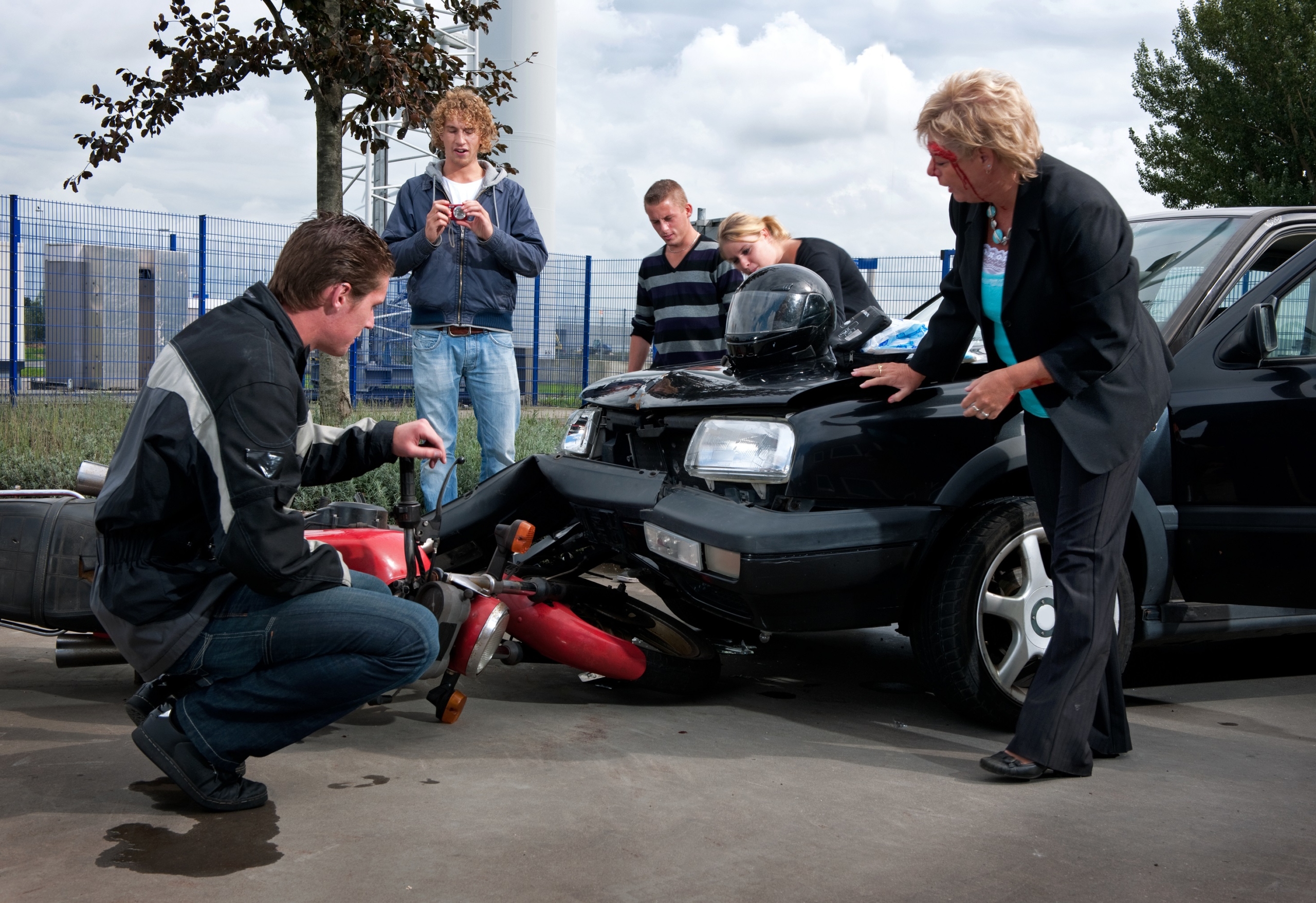Accident Attorney happen unexpectedly, often leaving victims with physical injuries, emotional distress, and financial burdens. Whether it’s a car crash, a workplace incident, or a slip-and-fall, navigating the aftermath can be overwhelming. Hiring an accident attorney can be a crucial step toward securing fair compensation and protecting your legal rights. But what exactly should you expect when working with an accident attorney? This article explores the process, from finding the right lawyer to understanding their role, the timeline of a case, and what outcomes you might anticipate. By the end, you’ll have a clear picture of how an accident attorney can guide you through this challenging time.
Why Hire an Accident Attorney?
Before diving into the process, it’s important to understand why an accident attorney is necessary. After an accident, you may face medical bills, lost wages, and property damage. Insurance companies, while often involved, may offer settlements that undervalue your claim or deny liability altogether. An accident attorney specializes in personal injury law, which covers cases like car accidents, truck collisions, motorcycle crashes, pedestrian injuries, and more. Their expertise ensures that your case is handled professionally, maximizing your chances of receiving fair compensation.
Attorneys bring several advantages:
- Legal Knowledge: They understand complex laws, statutes of limitations, and liability rules specific to your case.
- Negotiation Skills: Attorneys are skilled at negotiating with insurance companies to secure better settlements.
- Evidence Gathering: They collect and analyze evidence, such as police reports, medical records, and witness statements, to build a strong case.
- Courtroom Experience: If your case goes to trial, an attorney will represent you effectively in court.
With these benefits in mind, let’s explore what to expect when hiring an accident attorney.
Step 1: Finding the Right Attorney
The first step is choosing an attorney who suits your needs. Not all lawyers are the same, and finding one with experience in accident cases is critical. Here’s how to begin:
Research and Referrals
Start by researching attorneys in your area who specialize in personal injury or accident law. Online reviews, legal directories, and bar association websites can provide a list of qualified professionals. Additionally, ask friends, family, or colleagues for referrals if they’ve worked with an accident attorney before.
Check Credentials
Verify the attorney’s credentials, including their education, certifications, and membership in professional organizations like the American Association for Justice. Look for attorneys with a track record of handling cases similar to yours. For example, if you were injured in a truck accident, an attorney experienced in trucking regulations will be more effective than a generalist.
Initial Consultation
Most accident attorneys offer free initial consultations. During this meeting, you’ll discuss the details of your accident, injuries, and potential claims. The attorney will evaluate whether your case has merit and explain how they can help. This is also your chance to assess the attorney. Are they attentive? Do they communicate clearly? Do they seem genuinely interested in your case? These qualities are essential for a productive attorney-client relationship.
Questions to Ask
Prepare questions for the consultation to ensure you’re making an informed choice:
- How many accident cases have you handled, and what were the outcomes?
- What is your fee structure? (Most accident attorneys work on a contingency fee basis, meaning they only get paid if you win.)
- Who will handle my case—you or a junior attorney?
- How long do you expect my case to take?
- What challenges do you foresee in my case?
By the end of this step, you should feel confident in your choice of attorney and ready to move forward.
Step 2: The Attorney-Client Agreement
Once you’ve selected an attorney, you’ll sign an attorney-client agreement. This document outlines the terms of your working relationship, including the attorney’s responsibilities, your obligations, and the fee structure. Most accident attorneys operate on a contingency fee basis, typically taking 25-40% of the settlement or award. The agreement will also detail any additional costs, such as court fees, expert witness fees, or administrative expenses, which may be deducted from your compensation or billed separately.
Read the agreement carefully and ask for clarification if anything is unclear. This contract formalizes your partnership and ensures transparency throughout the case.
Step 3: Case Investigation and Evidence Gathering
After signing the agreement, your attorney will begin investigating your case. This phase is critical for building a strong claim. Here’s what to expect:
Gathering Documentation
Your attorney will collect essential documents, including:
- Police Reports: For car accidents or other incidents involving law enforcement, these reports provide an official account of the event.
- Medical Records: These demonstrate the extent of your injuries, treatment received, and ongoing medical needs.
- Bills and Receipts: Documentation of medical expenses, property damage, and other costs helps quantify your financial losses.
- Employment Records: If you’ve lost wages due to the accident, pay stubs or employer statements can verify your income loss.
Witness Statements
If there were witnesses to the accident, your attorney may interview them to corroborate your version of events. These statements can strengthen your case by providing independent perspectives.
Expert Consultations
In complex cases, your attorney may hire experts, such as accident reconstruction specialists, medical professionals, or economists, to provide testimony. For example, an accident reconstructionist can analyze crash data to determine fault, while an economist can calculate future lost earnings.
Communication with Insurance Companies
Your attorney will handle all communication with insurance companies, including the at-fault party’s insurer and your own. This protects you from saying something that could harm your case and ensures that negotiations are conducted strategically.
During this phase, your attorney may ask you to provide additional information or attend medical evaluations to document your injuries. Be responsive and honest, as this helps build a compelling case.
Step 4: Filing a Claim or Lawsuit
Once the investigation is complete, your attorney will decide whether to file an insurance claim or a lawsuit. Most accident cases are resolved through settlements with insurance companies, but some require litigation. Here’s what each path entails:
Insurance Claim
Your attorney will submit a demand letter to the at-fault party’s insurance company, outlining your injuries, damages, and the compensation you’re seeking. The insurer may respond with a settlement offer, which your attorney will review. If the offer is too low, your attorney will negotiate for a fairer amount. This process can take weeks or months, depending on the complexity of the case and the insurer’s willingness to cooperate.
Lawsuit
If negotiations fail or the insurer denies liability, your attorney may recommend filing a lawsuit. This involves drafting a complaint, filing it in court, and serving it to the defendant (the at-fault party). The lawsuit officially begins the litigation process, which includes:
- Discovery: Both sides exchange information, such as documents, depositions, and interrogatories (written questions).
- Motions: Your attorney may file motions to request specific court actions, such as dismissing parts of the defendant’s case.
- Mediation or Settlement Talks: Even after a lawsuit is filed, many cases settle before trial through mediation or negotiations.
Your attorney will keep you informed about the progress and advise you on whether to accept a settlement or proceed to trial.
Step 5: Settlement or Trial
The majority of accident cases—about 95%—settle before trial. However, it’s important to understand both possible outcomes.
Settlement
If you and the defendant agree on a settlement, your attorney will negotiate the terms, including the compensation amount and any conditions (e.g., a confidentiality clause). Once you sign the settlement agreement, you’ll receive the funds, minus your attorney’s fees and costs. The case is then closed, and you waive the right to pursue further legal action related to the accident.
Trial
If your case goes to trial, your attorney will present your case before a judge or jury. This includes delivering opening statements, presenting evidence, questioning witnesses, and making closing arguments. Trials can last days or weeks, depending on the case’s complexity. After the trial, the judge or jury will issue a verdict, determining whether you receive compensation and how much. If you lose, your attorney may recommend an appeal, though this is rare.
Step 6: Receiving Compensation
If you win a settlement or trial, you’ll receive compensation for damages, which may include:
- Economic Damages: Medical expenses, lost wages, property damage, and future financial losses.
- Non-Economic Damages: Pain and suffering, emotional distress, and loss of quality of life.
- Punitive Damages: In rare cases involving egregious misconduct, courts may award punitive damages to punish the defendant.
Your attorney will ensure the funds are disbursed correctly, paying any outstanding medical bills or liens before you receive the remaining amount.
Timeline and Challenges
The timeline for an accident case varies widely. Simple cases may settle in a few months, while complex cases or those involving serious injuries can take years. Factors affecting the timeline include:
- The severity of your injuries and recovery time.
- The willingness of the insurance company to negotiate.
- Court schedules, if a lawsuit is filed.
- The complexity of liability disputes.
Challenges you might face include delays, lowball settlement offers, or disputes over fault. Your attorney’s job is to navigate these obstacles and keep your case on track.
Tips for Working with Your Attorney
To ensure a smooth process, follow these tips:
- Be Honest: Provide accurate details about the accident and your injuries.
- Stay Organized: Keep all relevant documents, such as medical bills and correspondence, in one place.
- Communicate Promptly: Respond to your attorney’s requests for information or signatures.
- Trust Their Expertise: Your attorney has your best interests in mind, so follow their advice on settlement offers or legal strategy.
Conclusion
Hiring an accident attorney is a proactive step toward securing the compensation you deserve after an accident. From the initial consultation to the final settlement or trial, your attorney will guide you through each stage, handling legal complexities and advocating for your rights. By understanding what to expect—researching attorneys, signing an agreement, gathering evidence, and navigating claims or lawsuits—you can approach the process with confidence. While no two cases are identical, a skilled accident attorney will work tirelessly to achieve the best possible outcome, allowing you to focus on recovery and moving forward with your life.



